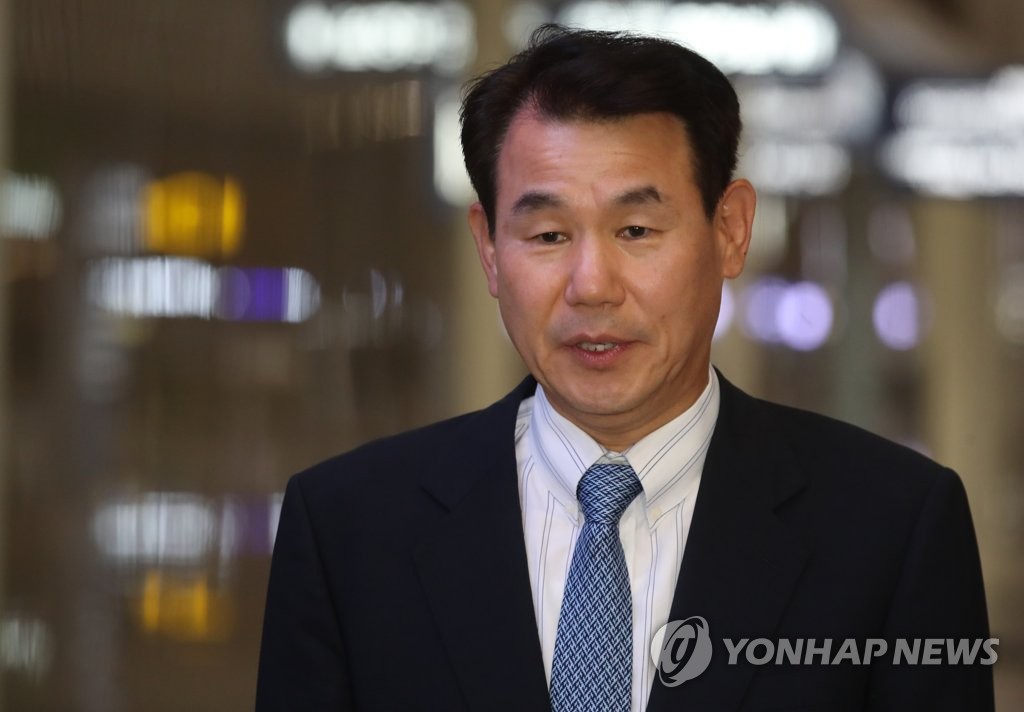- California Assembly OKs highest minimum wage in nation
- S. Korea unveils first graphic cigarette warnings
- US joins with South Korea, Japan in bid to deter North Korea
- LPGA golfer Chun In-gee finally back in action
- S. Korea won’t be top seed in final World Cup qualification round
- US men’s soccer misses 2nd straight Olympics
- US back on track in qualifying with 4-0 win over Guatemala
- High-intensity workout injuries spawn cottage industry
- CDC expands range of Zika mosquitoes into parts of Northeast
- Who knew? ‘The Walking Dead’ is helping families connect
Korea’s top negotiator vows ‘reasonable, equitable’ defense cost sharing with U.S.
South Korea’s top negotiator in defense cost-sharing talks with the United States vowed Tuesday to ensure that Seoul would make its financial contributions “reasonably and equitably.”
Jeong Eun-bo made the remarks as he departed for Hawaii for a fresh round of the negotiations on the 11th Special Measures Agreement (SMA), a deal on how much Seoul should shoulder for the upkeep of the 28,500-strong U.S. Forces Korea (USFK).
The negotiations are set to take place in Honolulu on Wednesday and Thursday. It would be Jeong’s first face-to-face meeting with his U.S. counterpart, James DeHart, as the previous session last month was attended by his predecessor, Chang Won-sam.
“I will make efforts to ensure that we will shoulder a share, which is possible within the framework of the South Korea-U.S. alliance and from the economic aspect, reasonably and equitably,” Jeong told reporters.

Jeong Eun-bo, South Korea’s top negotiator in defense cost-sharing talks with the United States, speaks to the media at Incheon International Airport, west of Seoul, on Oct. 22, 2019. (Yonhap)
He then said, “After all, when we conduct the defense cost-sharing negotiations, it boils down to the budgetary incidence to the respective countries.”
Asked if he has a plan to respond to Washington’s demand for a hefty rise in Seoul’s payments, Jeong said that he would make efforts in a way that “contributes to the strengthening of the alliance and the allies’ combined defense posture.”
Regarding the timeline for negotiations, he voiced hope that the talks would be concluded within the year. This year’s SMA is set to expire on Dec. 31, and the two sides should reach a new deal for next year and beyond.
“But there could naturally be a delay in the process of each side pursuing its different goal,” he added.
This year’s SMA requires South Korea to pay 1.04 trillion won ($886 million), an increase of 8.2 percent from the previous year.
Since 1991, Seoul has shouldered partial costs under the SMA — for Korean civilians hired by the USFK, the construction of military facilities to maintain the allies’ readiness and other forms of support.











